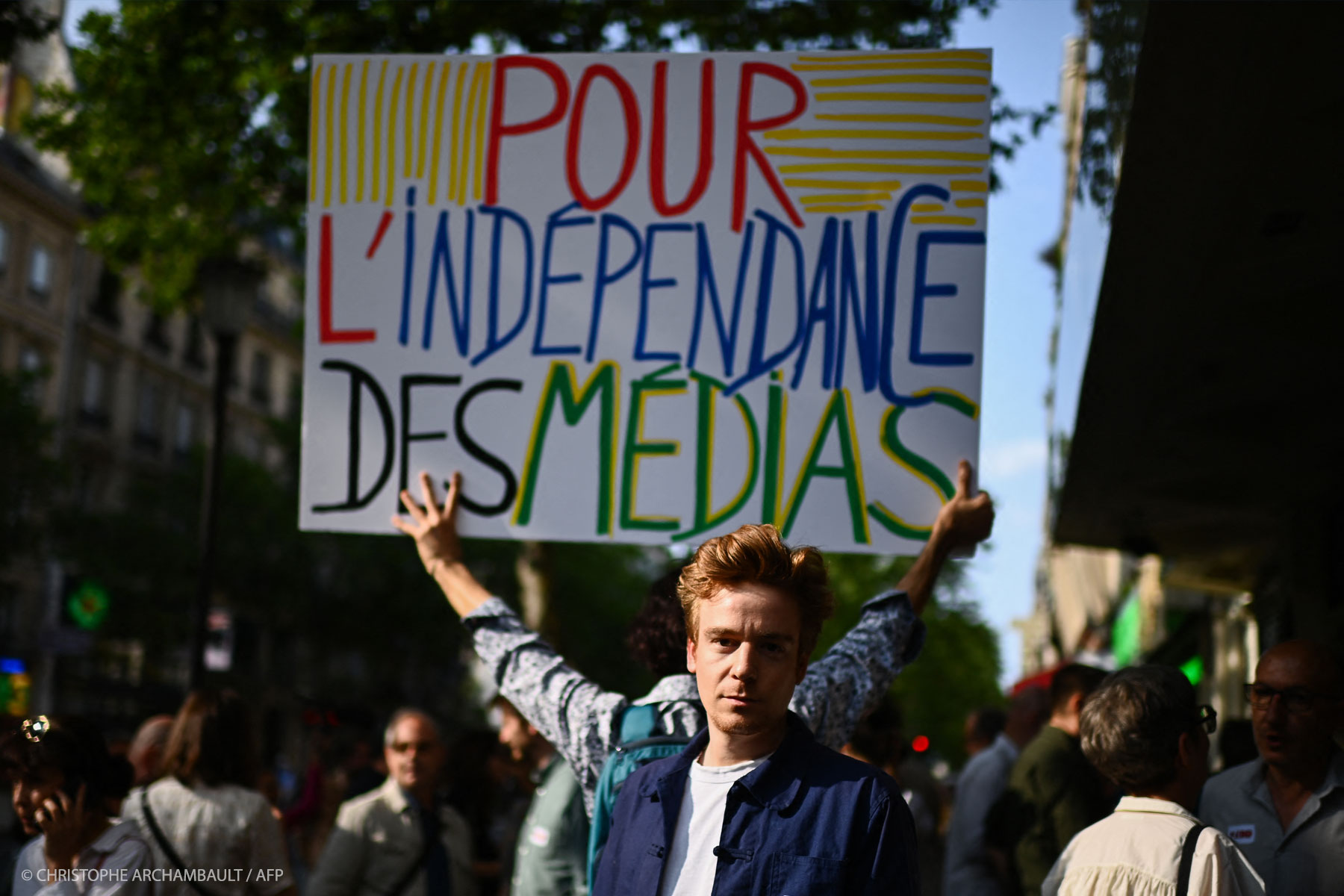The journalists’ union issued a stark warning on Wednesday, highlighting potential severe consequences for press freedom in Cyprus if the controversial Article 4 of the European Media Freedom Act is enacted into law.
Cyprus is among seven countries supporting this clause, along with Greece, France, Italy, Greece, Sweden, Malta and Finland.
Recently, Article 4 of the European Media Freedom Act (EMFA) has become a contentious issue. This article, encompassing the majority of provisions aimed at ensuring the independence and protection of journalists, has raised concerns.
The discord stems from the European Council’s final mandate for negotiations with the Parliament, wherein the list of crimes justifying surveillance was expanded. Additionally, an exemption was introduced, allowing EU member states to employ spyware on journalists if deemed necessary in the interest of national security.
In a statement released on Wednesday, the journalists’ union urged the Cyprus government to reconsider its stance and avoid contributing to the legalisation of surveillance on journalists.
The union expressed disappointment at the confirmation received from the European Federation of Journalists regarding the Cyprus government’s support for the contentious clause.
“If this is implemented, the freedom of the media will be dealt a huge blow, and journalists and their sources will be put at risk,” the union added.
The union focuses on the significant impact that implementing this provision could have, dealing a substantial blow to media freedom and placing journalists and their sources at risk.
The clause, which permits surveillance for “national security” reasons, was identified as posing substantial risks to press freedom, freedom of expression, and the overall process of democratisation.
France, Italy, Greece, Sweden, Malta, Cyprus, and Finland are advocating for the inclusion of this provision in the new European Media Freedom Act. They argue that surveillance would be permissible in “extraordinary circumstances” to safeguard national security.
Rise to the occasion
The journalists’ union called on Cyprus’ six-member delegation to the European Parliament to “rise to the occasion and safeguard the journalistic community from potential threats to press freedom”.
Additionally, it urged the EP and the European Commission to strongly reject this provision, emphasising that it not only jeopardises journalistic sources, but also democracy in general.
Government spokesperson Konstantinos Letymbiotis asserted that the EU legislation in question aims to enhance media freedoms and plurality.
He clarified that the exemption allowing monitoring of journalists’ communications would be applicable only in “extraordinary circumstances.”
The opposition party AKEL has subsequently brought the matter to the attention of the House interior committee.
As of now, Cyprus holds the 55th position out of 180 countries in the world press freedom index.
The Brussels-based industry group News Media Europe said that institutions were working “day and night” to finalise the agreement.
“We shared our concerns on the potential use of spyware by governments to monitor media (included in Article 4), to which the Commission replied: “we take them very seriously and do our best to address them”.”
Impartial authority
Seventeen media organisations signed a paper saying that in order for interferences with journalists’ freedoms to be justified, a prior order by an independent and impartial judicial authority is required.
“With the European Media Freedom Act (EMFA), the EU has set itself the noble goal of strengthening media freedom in the EU. But unless the proposed Article 4 is in line with international standards, such as the European Convention on Human Rights (ECHR), the final text could fall short of this original objective.”
Considering recent developments in EU Member States, such as the proliferation of intrusive surveillance tools, it is all the more important that the EMFA effectively protects media service providers, their journalists and sources.
Earlier in the year, a report by the EP’s Committee of Inquiry to investigate the use of Pegasus and equivalent surveillance spyware (PEGA) noted that Cyprus has played a major role as an export hub for spyware used in recent eavesdropping cases that have shaken the EU and a number of member states.
“Cyprus has played a major role as an export hub for spyware, and should repeal all export licenses it has issued that are not in line with EU legislation,” said PEGA in the report released in May this year.
The European parliamentary committee also made note of Cyprus’ involvement in the spy case that shook Greece, which saw the spyware Pegasus, used to monitor opposition party leaders and journalists.
The committee has also requested that further investigations are made into reported cases of eavesdropping on journalists, lawyers, activists and citizens in Cyprus.










